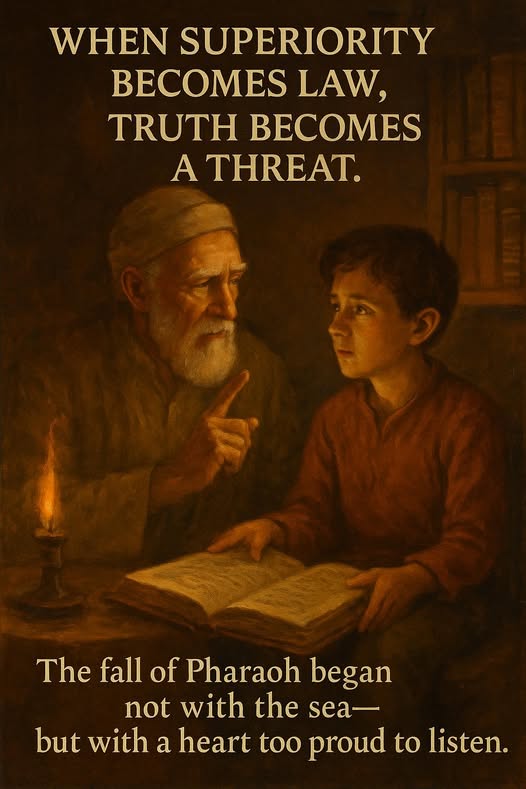
The afternoon sun slanted through the garden canopy, casting dappled light across the old wooden bench where Emil and his grandfather sat. A quiet breeze rustled the leaves, but Emil’s face was tense, troubled by something deeper.
“Grandfather,” he began, “why do some people refuse to admit they’re wrong—even when the truth is right in front of them?”
Grandfather exhaled slowly. “Ah, Emil. That is the dust of superiority. Once the greed for being right—or for being above others—settles deep within a person, it clouds their judgment and hardens their heart. Then, even the brightest truth becomes unbearable to look at.”
He picked up a small mirror from the garden table, smudged with dirt from earlier work. “Look here,” he said, wiping one half clean. “This side reflects clearly. But the other side? Distorted. If your heart is like this mirror, and pride like dust, then truth will never reach you clearly.”
Emil looked at the dirty half. “So people protect their pride even if it means rejecting the truth?”
Grandfather nodded. “Exactly. Because accepting the truth would mean letting go of the illusion of superiority. And for some, that illusion becomes more precious than integrity.”
Emil nodded. “Like… Pharaoh denying Moses, even with all the signs.”
“Exactly,” Grandfather said. “That story wasn’t just about one man. It’s a mirror for all of us. Any time we let superiority take root—thinking we’re better, smarter, chosen, superior caste, more righteous—we risk hardening our hearts. And a hardened heart doesn’t just reject people. It begins to reject truth itself.”
Emil paused, then asked, “But… what happens when it’s not just a person, but an entire nation or political system that thinks it’s superior? What happens when a whole empire sees itself above others?”
Grandfather’s eyes grew grave. “Then history begins to tremble. When arrogance is embedded in law, culture, and power, it spreads like a sickness. Justice becomes selective. The people begin to worship their own image. And those who speak truth are cast out as threats.”
He looked out toward the horizon. “Pharaoh’s fall wasn’t just personal—it was national. His arrogance echoed through his army, his ministers, his people. And when God finally intervened, it wasn’t just one man swallowed by the sea—it was a system built on pride that collapsed in one terrifying wave.”
Emil whispered, “So when superiority takes hold of a nation, it dooms everyone?”
“Yes,” Grandfather replied. “When a society clings to a sense of superiority, it grows blind to its own corruption. That blindness erodes the integrity of its political system—the very system meant to empower the nation. As the foundation erodes, so does the pursuit of wisdom and virtue. Eventually, this decline in knowledge and morality becomes visible in the nation’s leadership—and that is where the fall truly begins. No nation collapses overnight; it crumbles first in character, then in power.”
He turned back to the mirror. “That’s why we must guard our hearts first. Because pride in a palace starts as pride in a person. If we clean our own mirrors, maybe we can help keep the world from shattering.”
Emil was quiet for a moment. “So truth is like sunlight… but only if your mirror is clear?”
Grandfather smiled. “Yes. Clean hearts reflect truth. Clouded ones deflect it.”
The breeze stirred again, gently lifting a leaf from the bench. Emil held the mirror in his hands, staring into his own reflection—less concerned now with what he saw, and more with how clearly he saw it.

